Mesa election: Where City Council candidates stand on water, housing, job growth
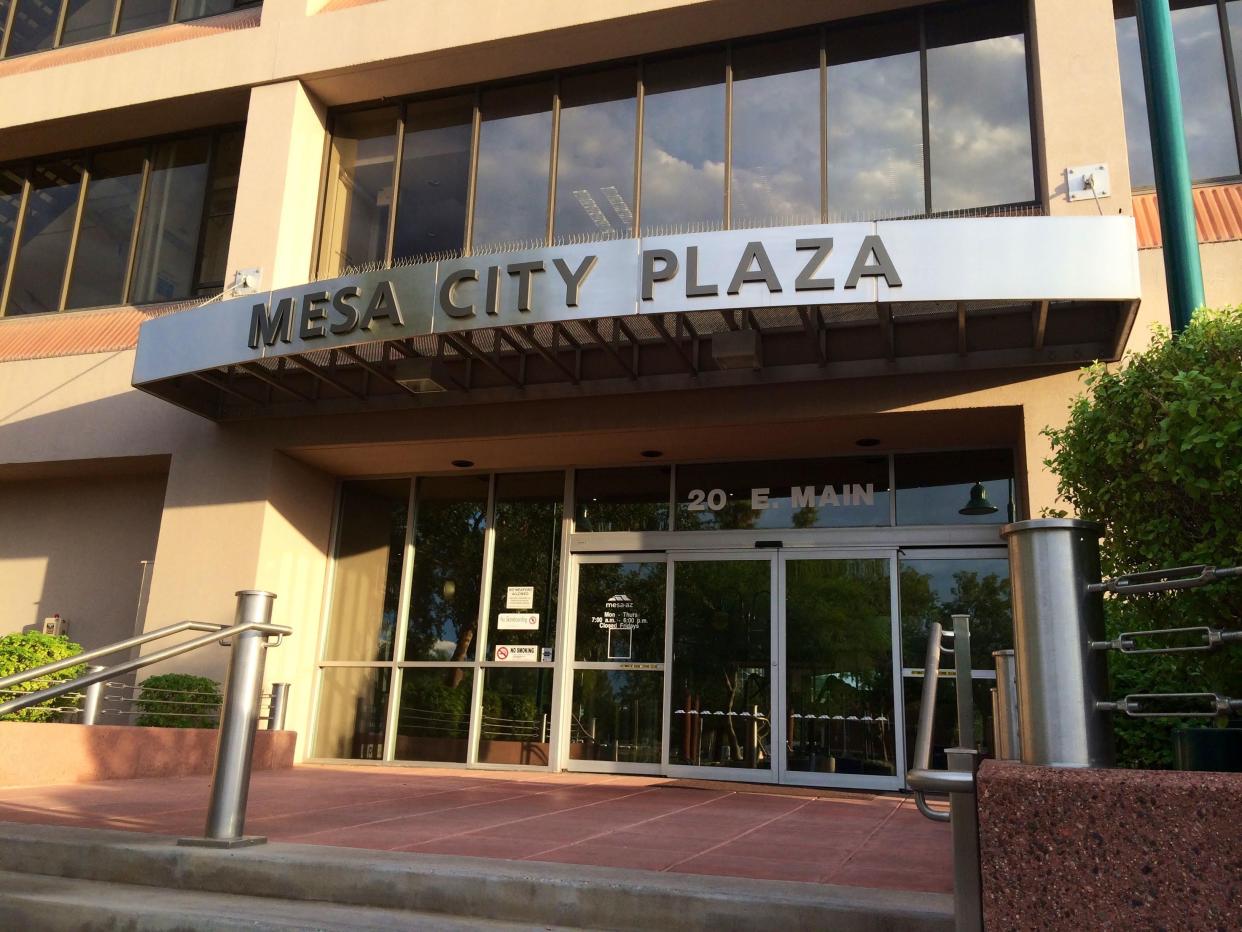
Mesa voters will select at least two new City Council members this year as only one incumbent is running.
District 4, which includes downtown Mesa, is a three-way race between incumbent Vice Mayor Jenn Duff, Trista Guzman Glover and Nathaniel Ross.
District 5, which spans northeast Mesa, only has one candidate: Alicia Goforth, an attorney. Incumbent Councilmember David Luna is term-limited.
District 6, in the southeast toward Gilbert and Queen Creek, is a two-way race between former Councilmember Scott Somers and used car dealership owner Darla Trendler.
Mesa election results: Voters head to polls for competitive City Council elections
These candidates vying for three City Council seats will have a hand in deciding the water, workforce and housing future for Arizona's third-largest city.
Mesa recently enacted the first of its four water shortage tiers, which cuts back on outdoor water use. Three in four Mesa residents commute outside the city for work, but a growing employment hub in the southeast near Phoenix-Mesa Gateway Airport is working to buck that trend. And an infamous downtown Mesa eyesore may soon find new life as apartments — some leaders and residents are pushing for it to include affordable housing.
The election is on Aug. 2. Early ballots will be sent starting July 6 to people who are registered to vote by mail.
Early voters should return their ballot in the mail by July 26 or place it in a ballot drop-off location or voting location by 7 p.m. Aug. 2.
The Arizona Republic asked candidates where they stand on the biggest issues facing Mesa. Here's how they answered.
2022 elections: Here’s who wants to be your next city council member in metro Phoenix
District 4, downtown Mesa
What are the biggest concerns facing your district and what are your solutions?
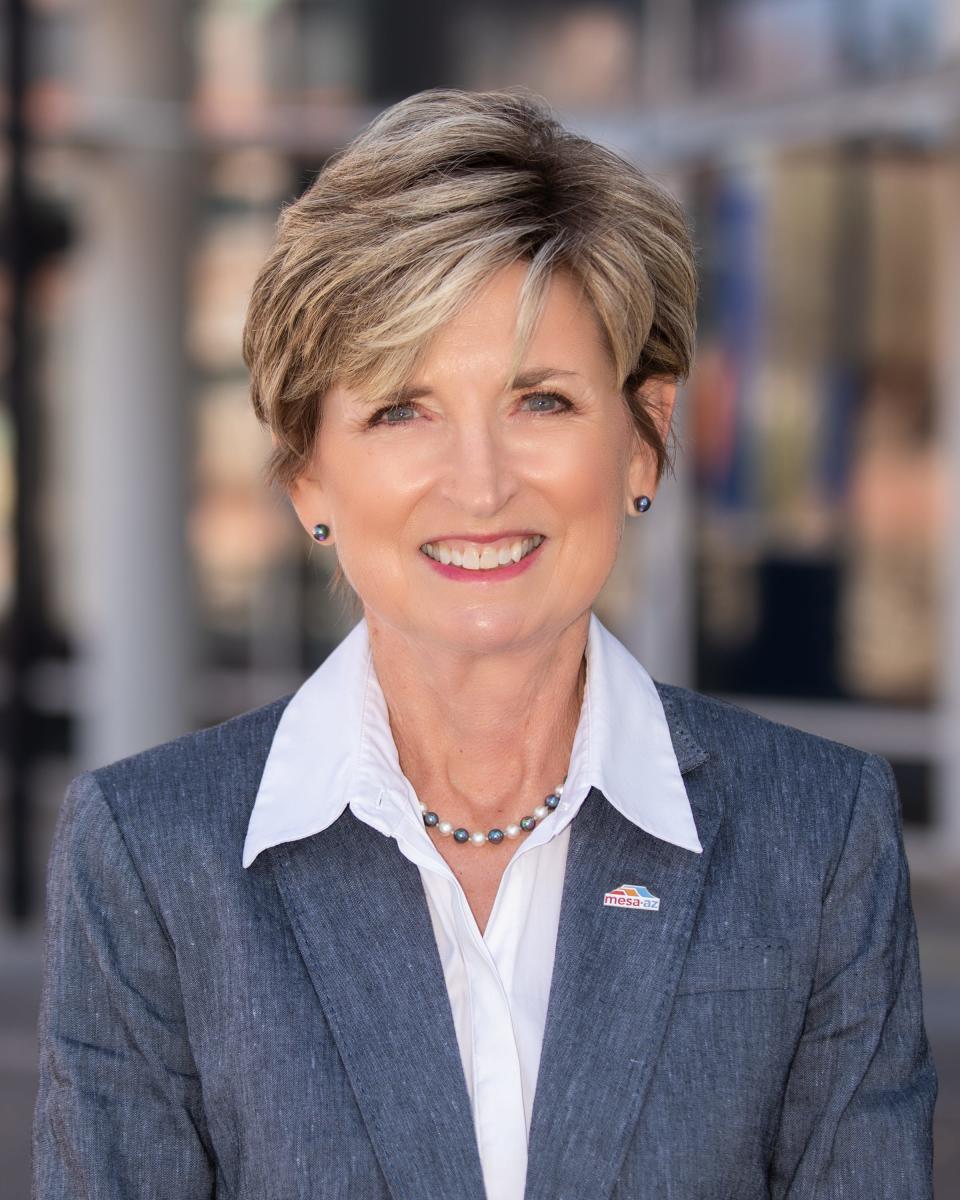
Duff: "Attainable high-quality housing and homelessness. We need housing choices for all incomes. This can mean easing the process for owner-occupied property owners to add a secondary unit (mother-in-law suite), incentivizing infill development, fast-track affordable building permits, etc. Whatever your stage of life, you should not have to leave the community you call home to meet your housing needs.
"Getting people off our streets and into services is another major concern. I would like to expand our “Off the Streets” program and create more transitional housing with our non-profit partners. The problem is not Mesa’s alone. I am pushing hard to ensure that all our neighboring cities do their fair share to help alleviate homelessness. As Vice Chair of the Maricopa Human Services and Community Initiatives Committee, I am working with other cities for regional solutions."

Guzman Glover: "Response times for calls to public safety are high, and we need to lower them. We need to provide our public safety departments with the resources and staffing they need to respond to the needs of residents. We have an aging infrastructure in the district that needs to be replaced and renewed. I will work with city staff so that these capital improvement projects are at the top of the list. District 4 needs someone on the City Council to be their voice and fight for them. Residents will know that when I am elected, I will be that voice and fight for them. I want them to help decide the future of their neighborhoods and fight against government overreach."
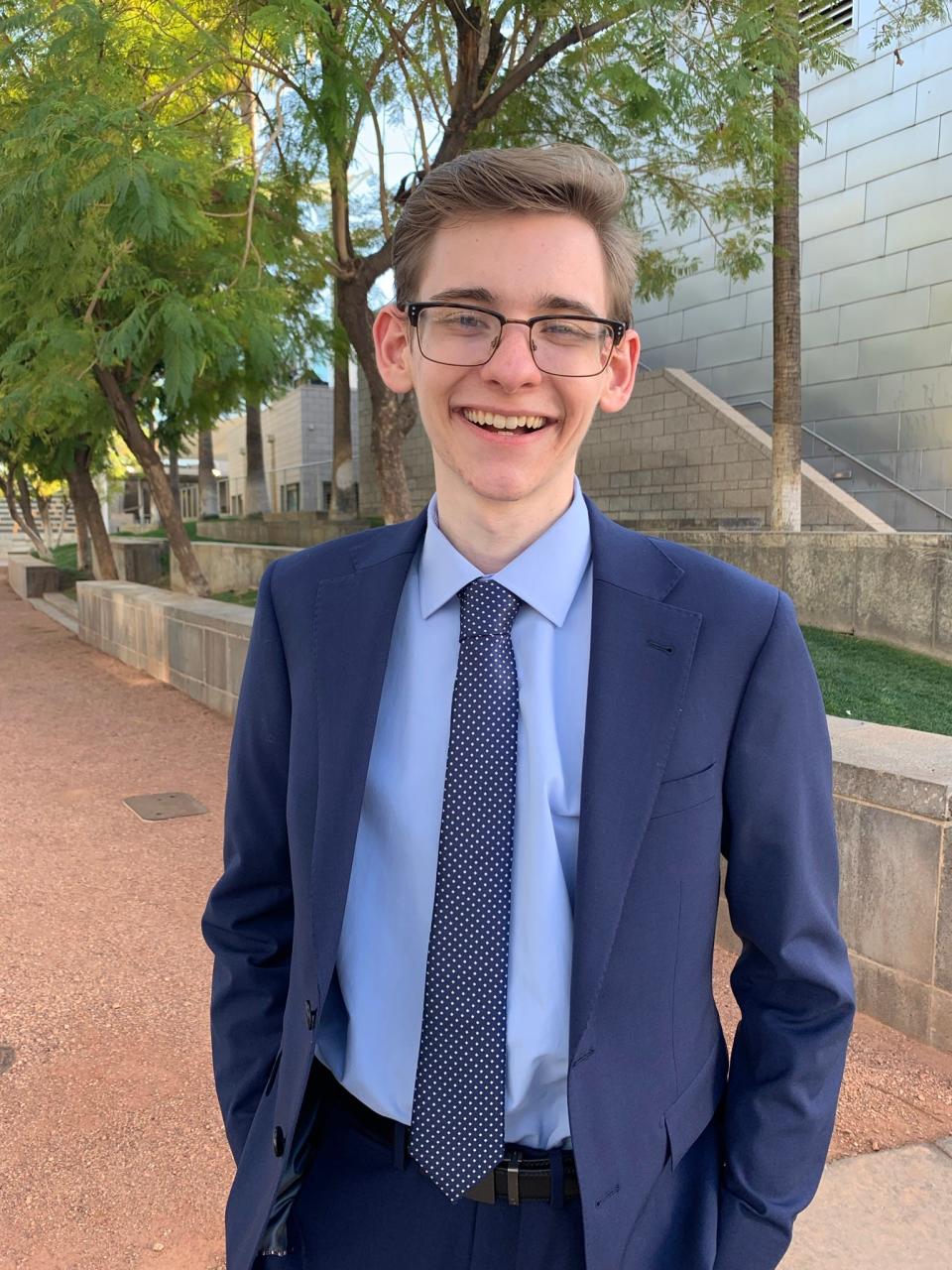
Ross: "The biggest problem facing District 4 is economic development. Given the opportunity, downtown Mesa can grow and thrive. A quick look at neighboring cities shows us the kind of transformation that is possible. Mesa must support current small businesses and encourage new businesses to come downtown. A thriving downtown will benefit all parts of the city and district with increased city revenue. With this revenue, we can offer much-needed investment in education, public safety, and city infrastructure. Downtown should also be easily accessible to folks who live outside of the city center. Supporting public transit and dedicated bike lanes will make visiting downtown safer and more convenient."
The city recently executed the first stage of its four water shortage tiers. As the second-largest city in the Valley, should Mesa take more aggressive action on water use to set an example? What would you suggest?
Duff: "We are taking good actions but must do more. Measures we are currently taking are:
Managing and balancing the water needs of new growth, including policy changes to manage large water users and working with commercial/industrial customers on water sustainability plans.
Maximizing efficiency in operations by utilizing water auditing.
Employing advanced technologies for pipe inspection and replacement to reduce water loss.
Installing smart landscape controllers that monitor weather conditions and detect leaks.
Investing in the Central Mesa Reuse Pipeline to treat more water for reuse.
Exploring sustainable and cost-effective water augmentation opportunities.
Expanding customer outreach and conservation programs for residents and businesses.
Installing Advanced Metering Infrastructure (AMI) for customers to digitally monitor their water use in real-time and set high-use alerts.
Banking water stored in the aquifer for shortage and long-term resilience planning.
Partnering with other water agencies to bolster Lake Mead levels in the 500+ Plan."
Guzman Glover: "Water is and always will be a crucial issue in Arizona. Mesa has always been a leader in this area and will continue to be a good steward of its conservatorship. It is important for the city to engage key stakeholders on any future developments. I believe that the city is taking a measured response in coordination with meeting the needs of residents and businesses. It should continue to make decisions based on the data and the information it currently has. Mesa has top-notch staff that provides policymakers with the most up-to-date information to make informed decisions."
Ross: "Water conservation must be prioritized by City Hall. Our resource management problems only worsen the longer we delay action. Mesa currently has “aspirational goals” to make Mesa more sustainable by 2050. Mesa must change course from aspiration to action and move forward with our sustainability plans to ensure future generations have access to vital resources like water. I support voluntary recommendations from the city for Mesa residents to reduce water consumption. For example, Mesa should inform residents about best practices for watering lawns to reduce water and provide more funding for people to convert their yards to water-friendly landscapes."
Mesa has a slew of big-name employers from Meta and Google to Boeing and Gulfstream, yet the vast majority of residents still commute outside the city for work. How would you approach that issue?
Duff: "Traditionally, Mesa has been a great place to live, but jobs were often outside our city resulting in long commutes. We need to focus on bringing more employment options within our city and improve transit for those who still need to commute to alleviate CO2 emissions and eliminate the high costs of owning and operating a car.
"I’m particularly focused on supporting small business and entrepreneurial development in my district. Our downtown urban core is an ideal place for creative minds to collaborate and grow, turning ideas into new jobs. We are building opportunities in our downtown Innovation district with ASU and Benedictine University, The Studios collaboration space, Mesa Small Business Lab, and coworking and entrepreneurial incubator spaces. I’m proud to help build an eco-system of education, entrepreneurial and small business support services paired with collaboration and incubation spaces to drive a creative economy for Mesa’s future and economic sustainability."
Guzman Glover: "I want Mesa to be where companies choose to relocate from around the Valley, the United States, and the world. We have the infrastructure to support more businesses. We already have many of the amenities that companies are looking for, making it attractive for employees of businesses to move to from other places.
"I would work with the city’s Economic Development team, the Mesa Chamber of Commerce, GPEC, the Arizona Chamber, the Arizona Commerce Authority, and any other organization to bring businesses to Mesa. We are the best city to live, work and play in the Valley, and I will always continue to work to bring new businesses, jobs, and residents to our city."
Ross: "One concern with the big-name employers moving to Mesa is the amount of resource consumption without a reciprocal increase in high-paying jobs. Data centers, for example, use vast amounts of water, yet offer relatively few employment opportunities.
"When considering any new businesses coming to Mesa, my first priority will be to assess the benefit to Mesa residents. Simply being a big-name company should not grant you easy access to our finite resources, especially if Mesa residents are not the primary beneficiaries of a new development.
"I want to encourage new industries to come to Mesa, however, I will not jeopardize our current or future access to vital resources to do so. Therefore, my approach to the issue is to support small businesses to increase local job opportunities and recruit new employers who want to utilize our people, not just our resources."
What should the city do to help solve the problem of increasingly unaffordable housing?
Duff: "Ease the process for owner-occupied property owners to add a secondary unit (mother-in-law suite) on their property. This allows homeowners to provide or rent living spaces for their children or parents and at the same time can provide an opportunity to afford/qualify for a mortgage subsidized by the accessory rental unit.
"Incentivize infill housing to encourage more options in every part of the city. Create a city housing trust fund — Tempe’s Housing for All is a great example. Fast track affordable housing building permits. Improve transit options near housing, as being a one or zero car household can dramatically reduce the cost of living."
Guzman Glover: "The city should continue to work with nonprofits to address the need for affordable housing. Nonprofits like Community Bridges, A New Leaf, and Save the Family have done extensive outreach in the community to work to address this issue. We need to continue working with them and look for areas around the city where we can support affordable housing.
"There should not be a concentration of affordable housing in a single district or region of Mesa, but we can work with nonprofits to address the need throughout the city."
Ross: "Mesa is quickly becoming an unaffordable place to live. This fact holds especially true for young people and families entering the housing market for the first time. The city needs to examine current zoning ordinances to incentivize inexpensive housing development. This can include rezoning property for single-family, multi-family, accessory dwelling units, and assisted living uses.
"Renters also face serious concerns with rising housing costs. One way Mesa can combat this problem is by offering funding to property owners for repairs and upgrades in exchange for an agreement to long-term affordability. Not only would this help keep families in housing, but it will ensure that affordable housing is also high quality."
District 5, northeast Mesa
What are the biggest concerns facing your district and what are your solutions?
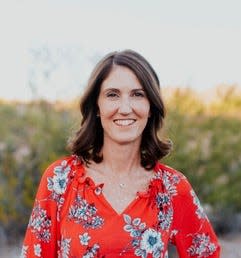
Goforth: "My top priorities for the district include jobs, public safety resources, and balancing growth and quality of life. We must support and attract high-quality businesses that provide well-paying jobs for Mesa residents. We must ensure our local education systems continue to provide an educated and skilled workforce, and we need to streamline the development process to make it easier for businesses to choose Mesa.
"We must invest resources in areas that enable our first responders to be the most effective in their primary jobs and acquire new technologies and create efficiency plans to reduce response times.
"Balancing growth and quality of life by preserving our beautiful scenery and open spaces with a focus on low traffic and accessibility is critical. We can bring the public together for recreation, relaxation, and entertainment and be creative with the design of these spaces, so they serve the surrounding community."
The city recently executed the first stage of its four water shortage tiers. As the second-largest city in the Valley, should Mesa take more aggressive action on water use to set an example? What would you suggest?
Goforth: "Water will be one of the most significant issues we face as a state in the coming decade, and municipalities should be leaders in helping to solve this crisis. We must find ways to cut back our water usage and encourage our residents to conserve more. Cities should look at updating development standards where appropriate and find additional uses for our treated wastewater."
Mesa has a slew of big-name employers from Meta and Google to Boeing and Gulfstream, yet the vast majority of residents still commute outside the city for work. How would you approach that issue?
Goforth: "As the city approaches build-out in the near future, we must look for ways to address infill and redevelopment opportunities creatively. We want our kids to not only want to stay in Mesa to raise their families but to have the ability to find well-paying jobs and afford to stay here."
What should the city do to help solve the problem of increasingly unaffordable housing?
Goforth: "This is a regional issue that every city in the Valley faces. The city can do a few things, like encouraging a greater mix of for-sale multifamily development and protecting commercial zoning to ensure businesses that provide high-wage jobs and a solid tax base can locate here. This will provide our residents with low taxes and opportunities to work closer to home."
District 6, southeast Mesa
What are the biggest concerns facing your district and what are your solutions?
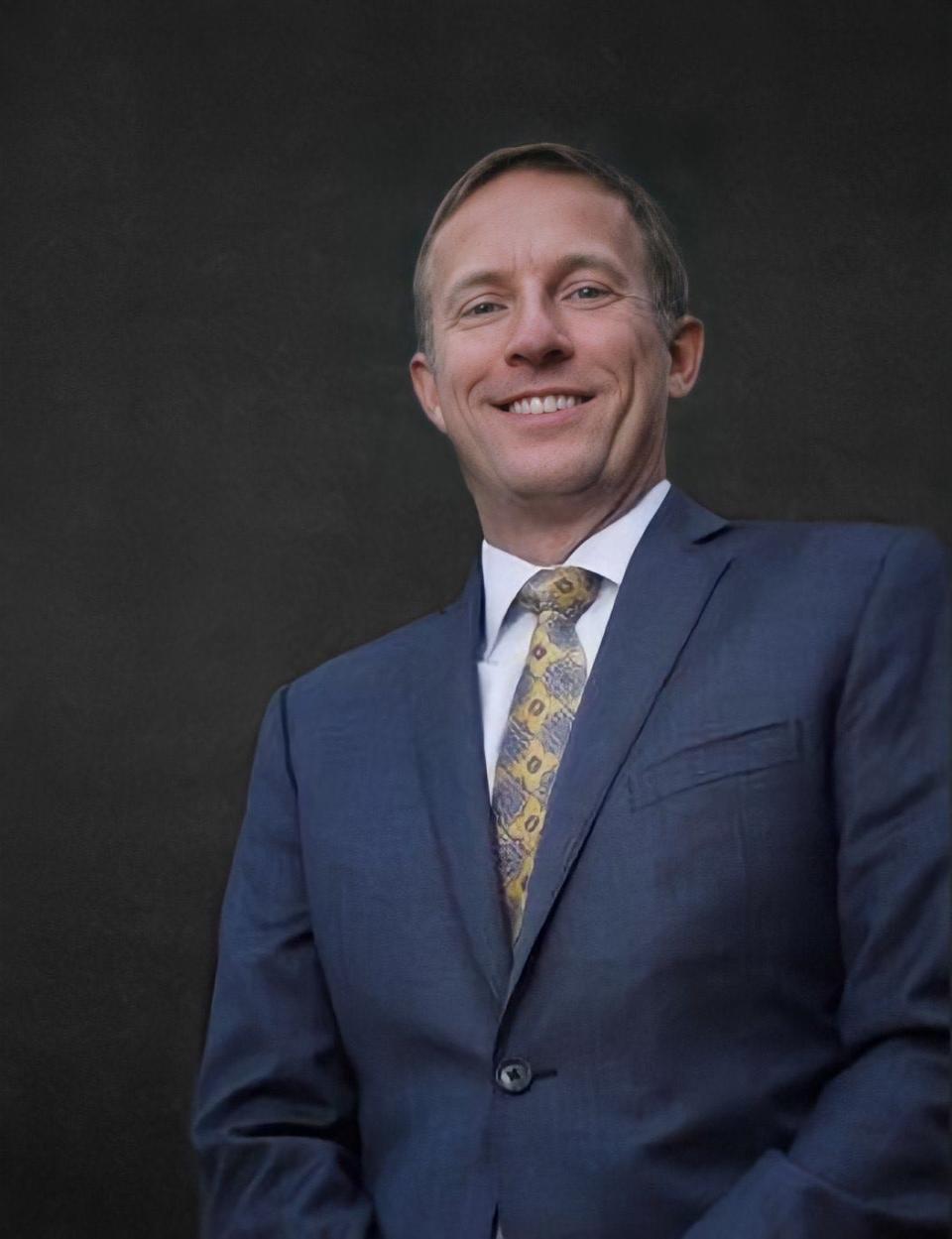
Somers: "One of the biggest concerns I hear when I’m talking to voters is the unprecedented inflation that is squeezing seniors, working families, and small business. As council member, I helped reduce city spending nearly 20% during the Great Recession by creating responsible budgets, streamlining city processes, and supporting entrepreneurial service solutions. I’m committed to focusing on conservative fiscal principles.
"Our quality of life is determined by the unique character and the vibrance of our community. We must prioritize preserving that character by ensuring proposed developments are high-quality. I facilitated numerous neighborhood meetings with stakeholders to find mutually beneficial solutions on challenging zoning cases that were in the community’s best interest.
"We must keep crime low. As a first responder myself, I know firsthand the challenges our responders face. This experience enabled me to foster partnerships and develop innovative, cost-effective solutions with proven results in reducing crime and preventing avoidable hospital visits."
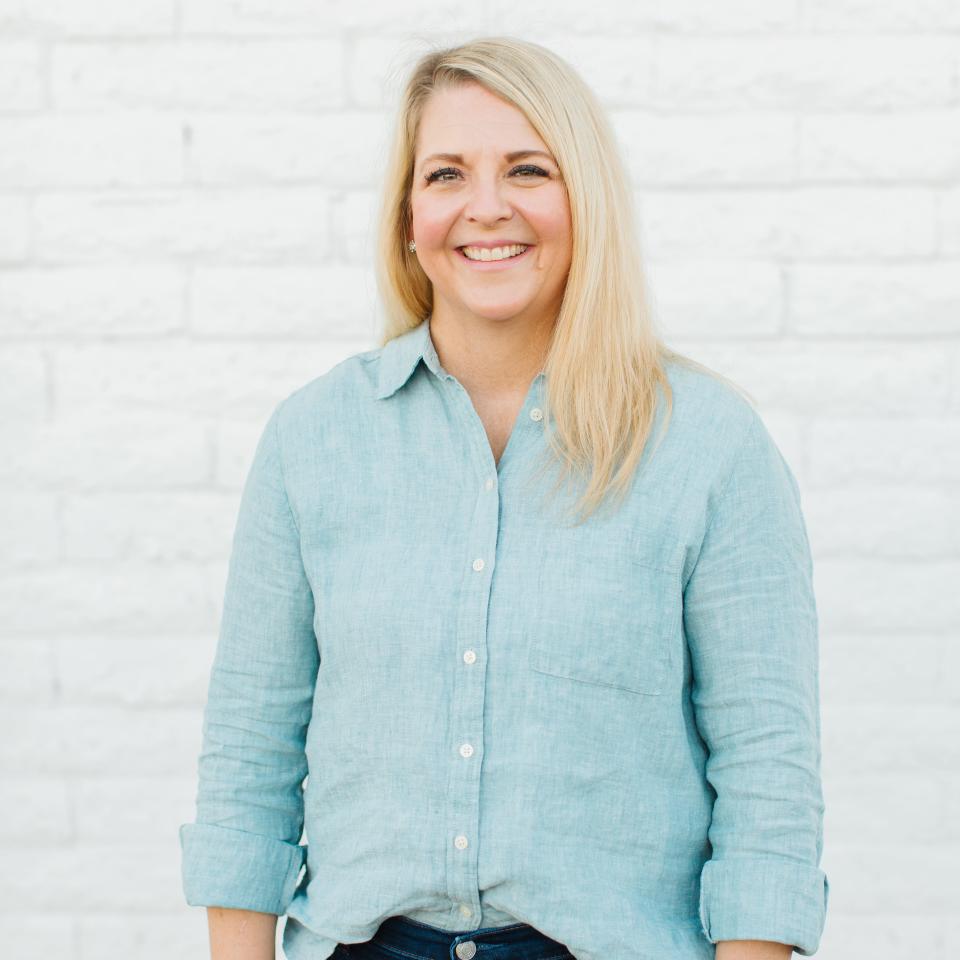
Trendler: "A major concern is the issues driven by the growth currently happening in District 6. While I support growth generally, it also creates concerns such as resource conservation, maintaining public safety and preserving a great quality of life. Economic development is vital, but I want to see it happen in the right way.
"I will prioritize attracting businesses that provide high-quality jobs for current and future residents of District 6 without mortgaging our water future. My plan is to ensure that future development provides an advantageous tradeoff for the use of our finite water supply.
"Also with growth, there is a potential for public safety resources to be strained. I will work with fire and police officials to create solutions to keep staffing levels at appropriate levels and always ensure response times never get too long. Growth in District 6 should improve the lives of everyone."
The city recently executed the first stage of its four water shortage tiers. As the second-largest city in the Valley, should Mesa take more aggressive action on water use to set an example? What would you suggest?
Somers: "I am firmly committed to protecting Mesa’s water future. Water and our economy are inextricably linked and assurances of predictable, reliable, and affordable supply impacts both residents and business investment. I made improving Mesa’s water portfolio a top priority as councilmember, including negotiating inter-governmental agreements to secure more water for Mesa, adding water sustainability to strategic planning, investing in efficient water infrastructure improvements, and exploring ways to reduce waste and recycle water.
"However, ensuring our water future does not end at our city limits — it is a statewide and inter-state challenge. Solutions require regional leadership. I have experience tackling complex, regional problems with organizations who are at the forefront of finding real solutions to water security and reliability. Mesa must be a leader on critical water issues. Water is a complex issue, but I am confident that I can contribute meaningfully to this discussion on day one."
Trendler: "Water is an important and finite resource that must be top of mind in everything we do. As a regional leader, Mesa’s current stage of reducing city water usage by 5% sends the right message that water conservation is important and we need to take action before water conditions become an absolute crisis.
"I will help Mesa lead in educating residents about the current state of the water supply, performing audits to ensure water used by the city is not wasted and setting the example of proper water usage by fighting for stronger incentive programs to reduce water usage in business and residential landscaping.
"In addition, Mesa can show a commitment to wise water use by leading the way in showing commercial users of our water how to be more energy-efficient and preserve the water we have."
Mesa has a slew of big-name employers from Meta and Google to Boeing and Gulfstream, yet the vast majority of residents still commute outside the city for work. How would you approach that issue?
Somers: "My goal now, as it was during my previous term, is to make District 6 a regional jobs hub for the southeast Valley. I am proud to be a part of the team that kicked off our tremendous economic success focusing on manufacturing, research, healthcare, aerospace, and technology. I am committed to providing the steadfast leadership necessary to resist sacrificing long-term vision for short-term gain that undermines our district’s economic potential.
"We must also foster local entrepreneurship. I facilitated a partnership with ASU Polytechnic to open a small technology business accelerator that has resulted in hundreds of jobs and millions in private capital investment.
"Mesa needs to continue to dismantle regulations that stifle new market trends. More and more, people are working from home. We should enable more live-work housing development and invest in infrastructure that makes it possible to work from home, such as high-speed broadband communications."
Trendler: "When I first moved to Mesa almost 23 years ago, it seemed that most people I knew commuted to Phoenix or other parts of the Valley for work. But over the past few years, I have noticed a shift with more of my neighbors and family members being able to work closer to home. With the economic development that has taken place in District 6 over the past several years, more people have the opportunity to work closer to home, which means they have more time for recreation, entertainment and spending time with family.
"With that said, I know there are many who still have to commute so I think it is vital to continue attracting the right employers to Mesa who offer high paying jobs that allow employees to support their families, utilize their education and work closer to home."
What should the city do to help solve the problem of increasingly unaffordable housing?
Somers: "As a veteran, I experienced how difficult it was to afford a home when transitioning from military to civilian life. When I was on council, we changed Mesa’s zoning code and invested in infrastructure to allow higher density, vertical mixed-use, and transit-oriented residential developments that bring a greater variety of housing to Mesa and better connects residents to jobs.
"Addressing affordable housing is another complex challenge with no easy solution. Housing affordability is impacted by many factors. Mesa must attract businesses that offer well-paid jobs so people can buy a home. We must keep taxes and fees as low as possible so that residents can spend their own money on family needs. We should facilitate private financing and partnerships to revitalize vacant or underutilized property for infill projects that bring residential and employment closer together to reduce the costs of transportation."
Trendler: "One of the reasons I am running for Mesa City Council is because I want future generations to have the same great quality of life my family has enjoyed. And I want my kids to be able to afford a home of their own here!
"Creating affordable housing goes beyond single-family homes for first-time home buyers. We also need a variety of housing options including duplexes, triplexes, townhomes, and other multi-family units spread throughout the city. I see a variety of ways to make this happen including incentives for developers to include more affordable housing options within developments, using grants and subsidies to revitalize existing neighborhoods and looking for innovative ways to use older, existing structures.
"I will partner with experts such as business owners, builders, realtors, and non-profit leaders to give recommendations to the council about how to address the housing crisis and listen to current residents to ensure that the additional housing being created fits the aesthetic of the neighborhood it is in."
Support local journalism. Subscribe to azcentral.com today.
This article originally appeared on Arizona Republic: Mesa election: Q&A with City Council candidates

